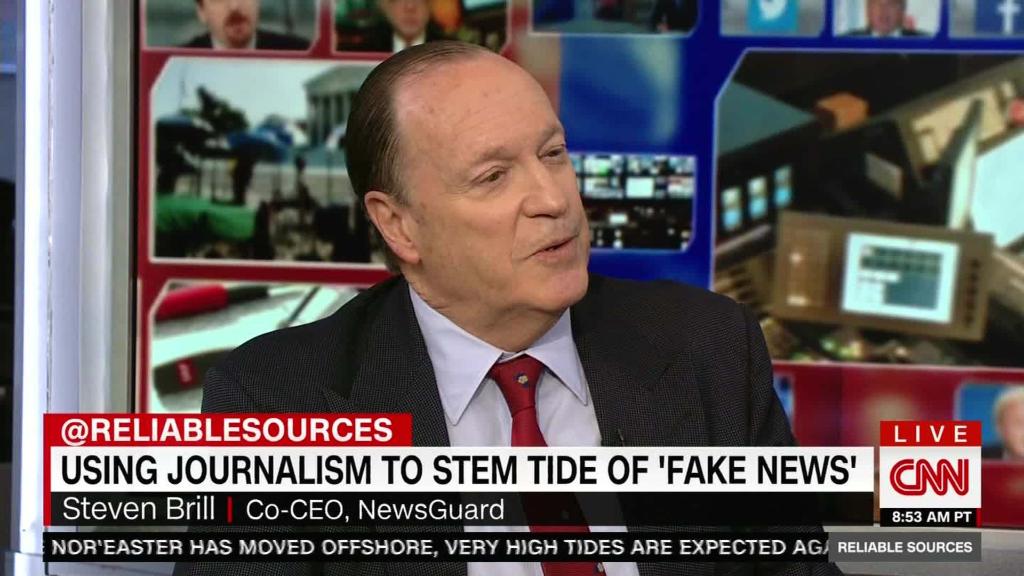
A start-up called NewsGuard is evaluating and rating the reliability of thousands of news sources. And it wants to sell this data to tech giants like Facebook (FB) and Twitter. (TWTR)
The stated goal: To help consumers distinguish between sites that are trying to get it right and sites that are trying to trick people.
"What we're doing is no more and no less than telling people the difference between The Denver Post, which is a real newspaper, and The Denver Guardian, which broke a bunch of, you know, completely fake stories right before the election," said Steven Brill, the co-CEO of the new venture. Brill previously founded Court TV, The American Lawyer and and Brill's Content magazine, among other ventures.
He said several dozen journalists will be hired to produce the reviews.
"We're going to solve that problem using, guess what, human beings," Brill said on CNN's "Reliable Sources."
Related: Facebook to show more content from friends, less from publishers and brands
The pitch is naturally appealing to journalists -- he's saying algorithms aren't cutting it, so real-life reviewers are needed to judge reliability.
Brill's co-CEO is Gordon Crovitz, a former publisher of The Wall Street Journal. He said NewsGuard will evaluate "7,500 news sites that account for 98% of engagement with news online in the U.S."
Websites will receive green, yellow, or red ratings. There will also be "nutrition labels" with more detailed information.
The labels "are intended to let readers know if they need to take particular brands they see online with a grain of salt -- or with an entire shaker," Crovitz said in an email message. "These write-ups will describe the mission, history and any viewpoints of the sites relevant to readers."
Related: Mark Zuckerberg is fighting to save Facebook
Brill added: "Imagine coming to a National Review story about affirmative action versus one from the Nation. Both totally legit publications, but unlike the old days when you knew what brands were, on a feed or in a search they both just look like headlines."
NewsGuard will be formally announced on Monday. Axios previously reported that the start-up has raised $6 million from investors.
To recoup the investment, NewsGuard will try to license its reviews and nutrition labels to search and social networking platforms. These platforms, like Google (GOOG), Microsoft (MSFT), Facebook, and Twitter, have come under severe scrutiny for allowing so-called "fake news" to spread.
Brill is reluctant to talk about specific talks with the tech companies, but when asked if there are any signs the companies will pay up, he said yes.
"We're asking them to pay a fraction of what they pay their P.R. people and their lobbyists to talk about the problem," he said on "Reliable Sources."


